Services
mHealth App Developer
Customized mHealth app solutions to satisfy user demands

HEALTHCARE APPLICATION DEVELOPMENT
We are mHealth medical app developers that aim to create a positive impact via life-saving mobile solutions. The healthcare industry is one of most under-served industries in terms of mobile app technology, despite the wide range of apps for patients and use cases to aid in the diagnosis, treatment, recovery, and monitoring of health data and wellness. Patients need digital health solutions to book appointments, chat with their doctors, or even get recommendations. We strive together with healthcare leaders and healthcare providers to improve the quality of healthcare delivery and patient outcomes through healthcare mobile app development.
Dogtown Media has a dedicated team of mobile health application developers who understand the unique design and compliance considerations required to bring health and medical apps to market. Our development team has the experience necessary to guide clients through healthcare application development founded in patient data security and regulatory compliance. As specialists in the field of medical iPhone app development, we offer a level of expertise that is virtually unmatched throughout the whole healthcare software development industry, combining machine learning and artificial intelligence to create an innovative mental health app.
OUR HEALTHCARE MOBILE APP DEVELOPMENT CAPABILITIES
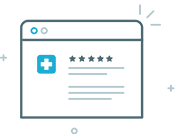
HIPAA Compliant Healthcare Apps
Security of healthcare mobile app is our highest priority and all healthcare mobile apps we create meet rigorous data protection standards to ensure HIPAA Compliance (Health Insurance Portability and Accountability Act). Unique User Authentication, Automatic Logoff, and Encryption are just some of the many data considerations we plan for to ensure your healthcare mobile app meets all required regulations and protects your patients confidential information in a safe and secure manner.
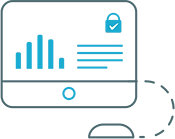
PROs
Dispense with paper questionnaires and collect patient survey responses digitally to obtain data regarding PROs or Patient Reported Outcomes. Inbuilt Likert charts can be conducted with an easy, swipe motion, allowing treatment effectiveness to be more efficiently measured and compared.
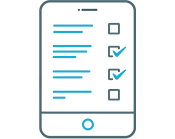
EHR Integration
As an Epic verified partner, our custom mHealth apps have Electronic Health Records (EHR) integration by design. Patient records are kept secure while available to the appropriate medical staff in an easy-to-use format.
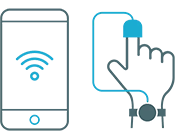
Wearables
We continue to remain at the forefront of Healthcare innovations. Our focus on remote-monitoring has yielded exceptional results, including Battlefield One, an award-winning wearable at NATO’s Defence Innovation Challenge.
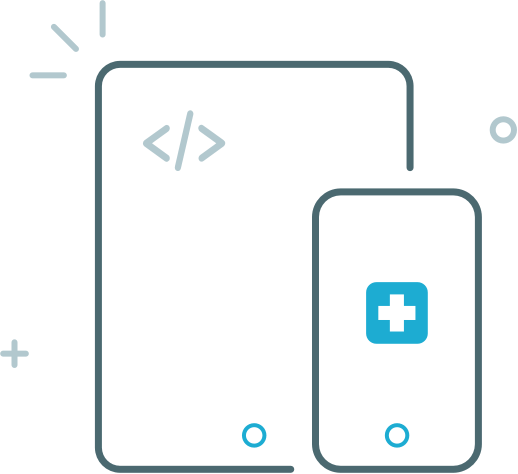
Amazing Mobile Medical App Ideas Into Market-Ready Products
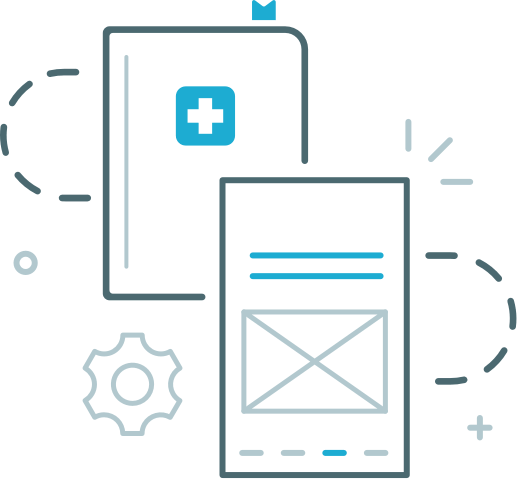
Healthcare App Development That Gets Results
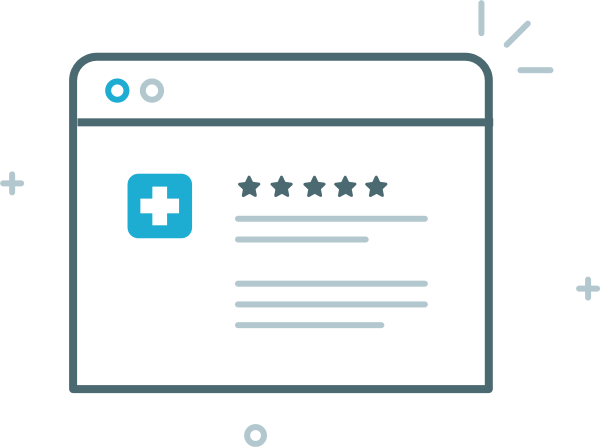
Patient-Driven Medical Mobile App Development
CUSTOM MHEALTH DEVELOPMENT FOR COMPLEX HEALTHCARE CHALLENGES
Dogtown Media engineers mHealth applications that bridge the gap between patient experience and provider performance. Our solutions are built to improve clinical workflows, optimize care coordination, and deliver better health outcomes while meeting the highest security and regulatory compliance standards.
We work at the intersection of mobile technology and healthcare systems to solve for real-world demands: from medication adherence and chronic condition management to remote monitoring and provider collaboration. Whether it’s building HIPAA-compliant mobile platforms or integrating with existing EHRs, we tailor each solution to its end users—patients, clinicians, and healthcare organizations alike.
SCALABLE SOLUTIONS ACROSS THE CARE CONTINUUM

Wellness & Preventative Care
We design wellness apps that capture biometric data from mobile devices and wearables, offering real-time feedback and longitudinal health tracking.
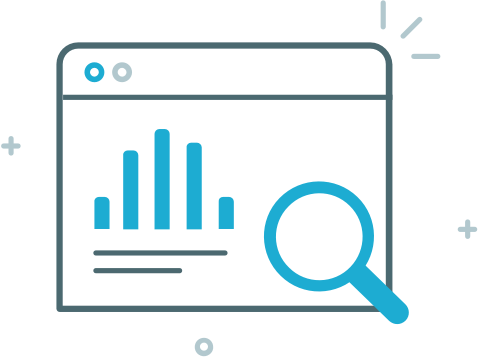
Condition & Lifestyle Management
We’ve deployed platforms for managing diet, sleep, stress, medication schedules, and behavioral routines—often enhanced by custom analytics and clinical dashboards.

Women’s Health & Senior Care
Solutions include reproductive tracking, postpartum support, and tools built for accessibility and caregiver coordination.
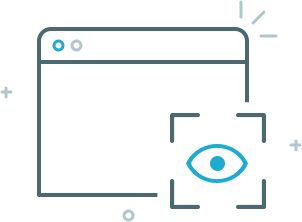
Remote Monitoring & Telehealth
We integrate connected devices and third-party sensors to extend provider visibility into patient vitals and symptoms outside the clinic.

Mental & Behavioral Health
Our apps facilitate mood tracking, guided therapy, and triaged crisis access and are developed in collaboration with licensed providers and clinical researchers.
DESIGNED FOR COMPLIANCE, BUILT FOR TRUST
- End-to-end encryption for medical records and communications
- Secure authentication protocols and role-based access controls
- Continuous security testing and risk mitigation
- FDA and SaMD-aligned development workflows when required
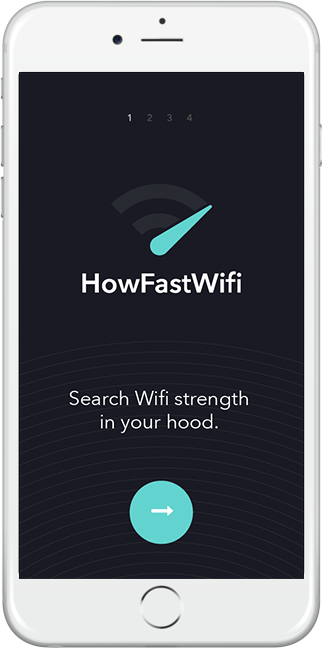
Minneapolis Heart Institute
The Minneapolis Heart Institute app contains up-to-date cardiovascular emergency protocols, available to physicians anywhere and anytime. The team at Dogtown Media developed the app to enable providers to have the tools at their fingertips that they need to ultimately save lives.
"Our relationship, especially for a tech novice like myself, was very gratifying."
Although we’re one of the nation’s largest healthcare organizations, we’ve never had a mobile app. Our program realized that the 40 hospitals that send us patients have been using hard copy protocol sheets for nearly 15 years. This practice required my predecessors to constantly replace those materials whenever our admitting protocols changed. We decided that a mobile app was the ideal alternative. They provided a personal experience, giving me their cell numbers. I appreciated that I could call or email any time; I didn’t need to use an 800 number or submit an online query. Our relationship, especially for a tech novice like myself, was very gratifying.
FREQUENTLY ASKED QUESTIONS
What do you need to know before starting any mHealth medical app development project?
As you plan your healthcare application development project, keep in mind who you are building this for (and why), what your goals are, and what you can do to make your mobile health apps unique beyond providing telehealth or appointment scheduling.
Different types of data require different protective precautions. For example, any personal or medical information collected from patients is considered protected health information (PHI) and requires HIPAA compliance around use, storage, and eventual destruction.
Along with HIPAA, additional regulations such as GDPR and the CCPA may apply to your healthcare mobile app development project. Failure to identify and correct these issues could lead to legal challenges that result in fines, sanctions, and damage to your company’s reputation. HIPAA compliance must be the cornerstone of your app development project. This includes the consideration of any covered entities that may access or interact with the medical records in your application, along with the permissions of users to access, view, and modify data.
You must consider how you will design and secure the three basic components of your healthcare application, which include:
- Coding frameworks: Will you use a native iOS or Android code approach, or opt for a cross-platform framework such as React Native that allows you to write code once and deploy it across multiple device types?
- Backend systems: How will you store user data and integrate it with existing systems such as CRM and ERP tools?
- Web portals: What steps will you take to manage administrative and physical web portals within your application? For example, administrators may need the ability to add or delete users, while physicians may require data access and modification privileges on patient portals.
Lastly, use product roadmapping to determine how you might expand your healthcare solutions and adapt to new users over time. What does the future of the medical industry and upcoming regulations look like? What new features and functionality might you release in the future?
What is the mobile health application development strategy for Remote Patient Monitoring?
The evolving nature of telehealth beyond virtual consultations makes Remote Patient Monitoring (RPM) and Remote Therapeutic Monitoring (RTM) a priority for mobile app development services. RTM is the practice of using medical technology to monitor health conditions, therefore it is important to consider how your medical app’s development strategy will build in the ability to monitor patients 24/7 — with their consent — to provide improved patient care. Our healthcare app development company is striving towards enhancing remote medical services by driving digital transformation in the industry. Many mHealth apps offer the ability to monitor patients via wearable devices that can be used outside of the hospital setting. For more in-depth insights and our free e-book on RTM click here!
How should you design and develop a healthcare app?
When it comes to mobile healthcare application development, user experience is key. Why? Because if users struggle to access and understand your health mobile app, user satisfaction and engagement naturally suffer, and adoption will quickly decline.
As a result, it’s critical to take a user-first approach to application design. This starts with testing sessions that include actual users interacting with a prototype of your app to provide direct feedback on ease of use, functionality, design and any other issues related to your healthcare application development.
Next, it is important to “know your users” and consider the user journey, which includes four key steps: onboarding, education, engagement and a call-to-action (CTA). Your app should include all four, meaning you need a way to attract user attention and get them up to speed, keep them interested in your content, and ultimately drive a specific action through your app.
Always take into consideration your end user when you’re building an ecosystem for them. Consider where the app will be used, how it will be used and when it will likely be used by your target audience. For example, if you are building an app in a clinical setting, there must be clear directions on using the app to make a lifesaving action. If the healthcare app is built for seniors, large font and large buttons should be used.
You should include use cases to help explain how your solution works for patients and healthcare professionals. For example, there are off-the-shelf wearable mobile devices such as Apple Watch and Fitbit that can send data to your doctor and track improvements in your health over time. In addition, devices such as blood oxygen monitors, smart blood pressure monitors and telehealth apps are continually being miniaturized.
Healthcare Mobile application development also needs to prioritize speed and insight. The more quickly you can get a working prototype built, the more quickly you can start collecting user feedback via surveys and other qualitative methods, in turn, making it possible to pinpoint potential problems ASAP. Our healthcare mobile app developers can create a first working software version or MVP in 2-4 months.
Additional recommendations during the app design phase:
- Examine how other healthcare app development companies do their design to get an idea of what the competition is doing.
- Make sure you prioritize functionality over visuals, especially if providing access to healthcare services is the primary goal.
- Consider push notifications design during health app development process
When you build a healthcare app, make sure your app colors set the right mood.
What are the best ways to create patient engagement and population healthcare services through a mHealth app ecosystem?
While onboarding and education are key, without engagement your healthcare apps will have limited sustainability and overall impact. To help ensure continued interest and interaction, healthcare companies are well-served applying engagement best practices to their development approach, including:
- Deliver regular content updates. Regular, high-value content such as articles, videos and blogs can keep users returning.
- Provide positive feedback. Features such as achievement badges for engaging with content or completing key tasks can help your healthcare application users stay engaged.
- Ask questions (and listen to the answers). Regular surveys let you see what’s working (and what isn’t) and make changes.
Personalize mobile healthcare applications wherever possible. Creating tailored app personas and providing personalized user experiences and dashboards can boost overall engagement.
How should you develop software for a 510 K medical device?
New devices that are found to be “substantially equivalent” to medical devices currently on the market can leverage the 510(k) process from the FDA. This allows these devices to be sold without the need for premarket approval (PMA), which includes rigorous testing and clinical trials.
While this is a net positive for market diversity, it introduces the challenge of software as a medical device (SAMD) that lacks substantive compliance controls and, in turn, must be recalled. As a result, developing software for a 510(k) medical device should follow the same best practices and design principles listed above to help reduce the risks of non-compliance and additional costs.
Keep in mind that the submission process is evolving regularly and may require FDA compliance. The FDA is becoming more friendly for mobile tech and mobile healthcare, and the mobile health space has become increasingly deregulated.
What are some common pitfalls to avoid for professional healthcare apps?
While every healthcare mobile application use case is different, five common pitfalls can undermine app efficacy and impact:
- Losing sight of the end user. If users aren’t happy, healthcare app adoption and impact will suffer.
- Making telemedicine apps too complicated. Complicated patient apps frustrate users, making them less likely to engage.
- Lacking clear goals and objectives. Without clear goals for your mobile applications, you could spend significant time and money for minimal returns.
- Considering compliance too late in the healthcare application development process. The sooner compliance is built into your healthcare app, the better. Too late and you may need to completely overhaul your application to meet current industry standards.
- Forgetting about the future.Your healthcare app isn’t static. Without a roadmap for the future, you may see initial engagement followed by a sharp drop-off as users lose interest.
How much does it cost to develop an mHealth mobile app?
The cost of your mobile healthcare application depends on several factors including the total scope of your custom app development, the type and number of features you want, and your timeline. An MVP (minimum viable product) is always a good point to start with.
While some mobile healthcare app developers offer fixed price models, this approach comes with a tradeoff: What features matter most to your business, and what are you willing to omit? At Dogtown Media, we take an all-factors approach to assess your options and find the best fit, budget-friendly approach that meets your business needs.